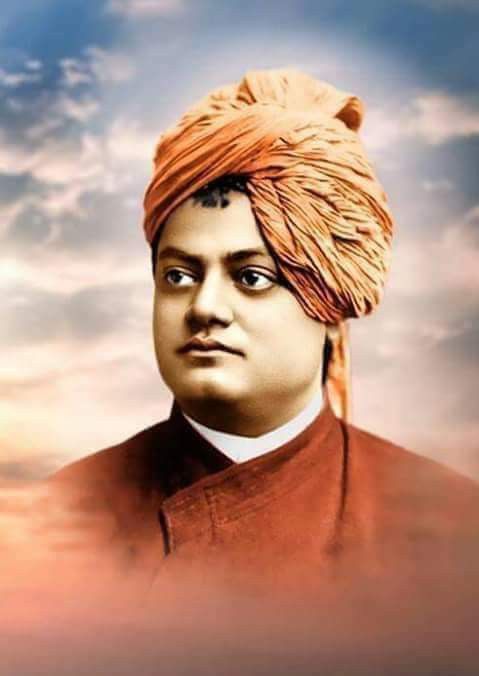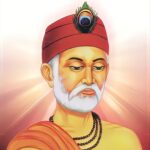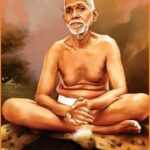Swami Vivekananda: The Visionary Monk Who Redefined Spirituality
Overview: Swami Vivekananda Biography
“5 Life-Changing Lessons from Swami Vivekananda Biography for Personal Growth” Swami Vivekananda (1863–1902) was an Indian Hindu monk, a chief disciple of Sri Ramakrishna, and a key figure in introducing Indian philosophies of Vedanta and Yoga to the Western world. His inspiring speeches, especially at the 1893 Parliament of the World’s Religions in Chicago, established him as a global spiritual leader. Swami Vivekananda’s teachings emphasized selflessness, spiritual unity, and the potential of human excellence.
Swami Vivekananda Biography
Swami Vivekananda was born on January 12, 1863, in Kolkata (then Calcutta), India, as Narendranath Datta. His father, Vishwanath Datta, was an attorney, and his mother, Bhuvaneshwari Devi, instilled in him a deep sense of spirituality. From an early age, Narendra showed exceptional intellectual and spiritual capabilities.
His life took a transformative turn when he met Sri Ramakrishna, a mystic and spiritual teacher, who became his guru. Under Ramakrishna’s guidance, Vivekananda experienced profound spiritual awakenings and developed a deep understanding of Advaita Vedanta (non-dualism).
In 1893, Swami Vivekananda traveled to the United States, where he delivered his famous speech at the Parliament of the World’s Religions, beginning with the words “Sisters and Brothers of America.” His message of religious tolerance and universal brotherhood captivated audiences worldwide.
Swami Vivekananda established the Ramakrishna Mission in 1897, aimed at social service, education, and spiritual upliftment. He passed away on July 4, 1902, at the young age of 39, leaving a legacy that continues to inspire millions.
Key Teachings: Swami Vivekananda Biography
- Divinity of Man: He taught that every individual has the divine within and that realizing this divinity is the goal of life.
- Universal Religion: Vivekananda advocated for religious harmony, emphasizing the unity of all faiths.
- Selfless Service: He believed in serving humanity as a form of worship to God.
- Strength and Fearlessness: “Arise, awake, and stop not till the goal is reached” became his clarion call for personal and social transformation.
- Education: He emphasized holistic education, combining spiritual and practical knowledge.
Daily Life Impacts: Swami Vivekananda Biography
Swami Vivekananda’s teachings resonate with people across all walks of life:
- Youth Empowerment: His ideals inspire young minds to embrace courage, self-confidence, and purpose.
- Social Service: His emphasis on service motivates individuals and organizations to work for the welfare of society.
- Spiritual Growth: His teachings on meditation and self-realization guide seekers toward inner peace.
Historical Significance: Swami Vivekananda Biography
- Global Spiritual Leader: Swami Vivekananda played a pivotal role in introducing Indian spirituality to the Western world.
- Reformer: He challenged social evils like caste discrimination and worked for women’s empowerment.
- Cultural Ambassador: His work bridged the gap between Eastern and Western philosophies.
Lesser-Known Facts: Swami Vivekananda Biography
- Inspired Nikola Tesla: Vivekananda’s discussions on energy and matter influenced Tesla’s scientific ideas.
- Multilingual Scholar: He was proficient in Sanskrit, Bengali, English, and several other languages.
- Meditative Vision: He envisioned the establishment of the Ramakrishna Mission during a deep meditative state.
- Young Philosopher: He completed much of his transformative work before his untimely death at 39.
Frequently Asked Questions (FAQs); Swami Vivekananda Biography
Q1: What are Swami Vivekananda’s main teachings?
His teachings include self-realization, religious harmony, selfless service, and education as the foundation for societal progress.
Q2: Why is Swami Vivekananda famous?
He is famous for his speech at the 1893 Parliament of the World’s Religions and his efforts to spread Vedanta and Yoga worldwide.
Q3: What is the Ramakrishna Mission?
It is an organization founded by Vivekananda that focuses on spiritual growth and social service.
Q4: How did Swami Vivekananda impact the youth?
His philosophy inspires youth to embrace strength, fearlessness, and a sense of purpose in life.
Significance: Swami Vivekananda Biography
Swami Vivekananda’s contributions to spirituality, education, and social reform have timeless relevance. His teachings encourage individuals to rise above limitations, seek truth, and serve humanity selflessly.
Observance and Celebrations: Swami Vivekananda Biography
- National Youth Day: India celebrates Swami Vivekananda’s birth anniversary on January 12 as National Youth Day, honoring his contributions to youth empowerment.
- Discourses and Events: Devotees and followers commemorate his life and teachings through seminars, readings, and meditation sessions.
Wishing for Vivekananda’s Values in Society
In a rapidly evolving world, Swami Vivekananda’s message of unity, courage, and service is more relevant than ever. His vision inspires societies to cultivate tolerance, pursue knowledge, and prioritize human welfare.
Key Points at a Glance: Swami Vivekananda Biography
- Born: January 12, 1863, in Kolkata, India.
- Philosophy: Advaita Vedanta, religious harmony, and self-realization.
- Legacy: Founder of the Ramakrishna Mission and global spiritual ambassador.
- Milestone: Speech at the 1893 Parliament of the World’s Religions.
- Celebration: National Youth Day commemorates his contributions.










